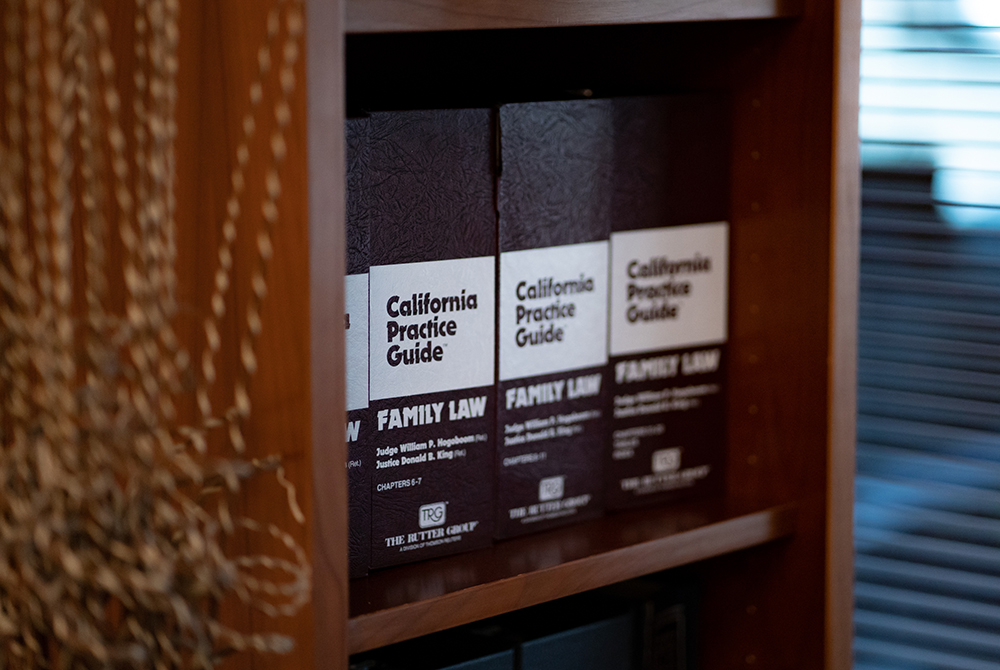- Contact Us:
- (707) 578-9386
- [email protected]
Our community consists of many types of families, each with unique concerns and issues. We will facilitate achieving your goals by listening to your needs and creating an individualized plan for resolution. Our job is to ensure you have the information necessary to make sound decisions.
We know that the decisions you make today can impact you for years. We encourage clients to think about their future 18 months, 36 months, or even 60 months after resolving a family law issue. Planning for and communicating your long-term goals to our attorneys may resolve your matter faster.
RELM’s family law attorneys support clients with individualized legal plans to address complex issues involving children, such as:
Regardless of which parent has custody, both parents are financially responsible for their child or children. California applies statewide guidelines to determine child support amounts. These guidelines consider each parent’s income and level of custodial responsibility to establish the amount owed. In certain circumstances, the court may consider a parent’s earning capacity rather than actual income when determining the amount of child support.
If you need help establishing, modifying, or terminating child support in Sonoma County, contact us for an appointment to understand your legal options.


The California courts must determine what is in the “best interests” of minor children when deciding custody orders. Courts must weigh the relevant factors and determine the child’s best interests solely from the standpoint of the child. The “best interests” guidelines aim to maximize a child’s opportunity to develop into a stable, well-adjusted adult and do not consider the parents’ feelings or desire for custody unless they help or hinder this healthy development.
Child custody is one of the most-disputed family law practice areas and can cause extreme stress, anxiety, and conflict. To speak with an experienced family law attorney about establishing, modifying, or terminating child custody in Sonoma, Marin or Napa County, make an appointment today and gain peace of mind by understanding all your available legal options, including resolution through mediation or collaborative law.
The landscape of family law has changed. From the unique complexities of blended families to partnership agreements and legal separations, many clients need much more than just a “divorce lawyer.” At RELM, we work with you to explore alternative dispute resolution options, such as mediation and collaborative law before litigation. We pursue creative and reasonable solutions when litigation is necessary to achieve successful outcomes.
Prenuptial and postnuptial agreements are legal contracts created by spouses before (pre-nuptial) or after (post-nuptial) entering a marriage. Prenuptial and postnuptial agreements typically outline the ownership and division of financial assets in the event of a divorce. The contract can also address parental responsibilities or other family and financial obligations.
Both parties can avoid the time and cost of divorce proceedings by agreeing to the disposition of property, other marital assets, custody, alimony, support, and the like in advance. The agreement is typically incorporated into the final divorce decree.
A postnuptial agreement will also seek to establish spouses’ rights in a future divorce. In addition to addressing marital property, they will also often limit or waive alimony (spousal support). In California, where spouses have a fiduciary obligation to each other, the contract must reflect the “highest good faith and fair dealings.”
Some reasons a couple may want prenuptial or postnuptial agreements include dividing interest in a business, protecting a family inheritance, or providing for a stay-at-home parent.
Call RELM for family law help in Sonoma, Marin and Napa Counties.


When a dissolution (divorce) or legal separation action is pending, the court may order either spouse to contribute towards the living expenses of the other spouse. To set the support amount, the court considers factors in Family Code § 4320, which include but are not limited to the marital standard of living and each party’s ability to maintain it. In certain circumstances, the court may consider a spouse’s earning capacity rather than actual income when determining spousal support.
The duration of spousal support depends on several circumstances. Generally, marriages of less than ten years will result in a support obligation that lasts one-half the duration of the marriage. The court cannot terminate the right to spousal support for marriages ten years or longer unless special circumstances exist. However, many spouses choose to end spousal support on a date in exchange for other considerations.
Do you need assistance establishing, modifying, or terminating spousal support in Sonoma, Marin, or Napa Counties?
RELM is the best family law practice for individuals or couples looking for mediation and collaborative law to achieve optimal resolution.
There are two filing options when seeking to formally end a marriage, dissolution (divorce) and legal separation. Both options require full property disclosure and division, spousal and child support orders (if applicable), and custody orders (if applicable).
Whether to file for a legal separation or dissolution of marriage should be discussed with an attorney. The two filing options are similar, except that a legal separation does not terminate the marital status. Should either party or both wish to remarry, a dissolution is required. The advantages commonly cited for legal separation over divorce are that spouses remain dependents and are, therefore, eligible to stay on a spouse’s employee health insurance plan.


The three major components of resolving marital property division during a divorce or legal separation include: (1) characterization, (2) valuation, and (3) division.
Property is characterized as “community property,” “separate property,” or a mix of community and separate property. Each person must disclose all assets and liabilities they have or may have an interest in.
Property is most often valued in several ways, depending on the type. A certified real estate appraiser values houses, pensions are valued by specialized experts, personal property is valued at its garage sale value, etc. Some properties may have sentimental value rather than monetary value.
The court requires an equal division of property. However, parties are free to determine what is equal. One party may want a specific item of property because its sentimental value is more significant than its monetary value. Other assets, such as pensions and retirement accounts, are generally divided equally among spouses. However, these can also be divided creatively to achieve a particular result as agreed between the parties.
At RELM, we work with you to establish realistic goals and efficiently achieve results.